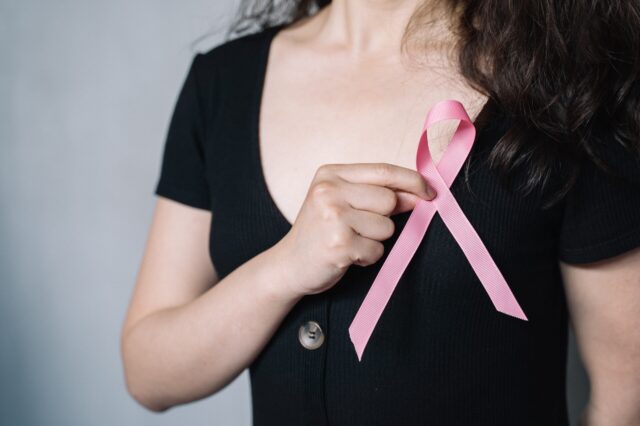Breast Cancer Screening 101: Everything You Need to Know About Early Detection

The smell of pumpkin spice is in the air, and there are hints of cooler weather ahead. While we don’t get the treat of seeing the leaves change colors in Florida, everything does seem to be going pink. October is National Breast Cancer Awareness Month, which means it’s time to start raising awareness of how best to prevent this disease.
Many of us have friends and loved ones who have been touched by breast cancer, as it affects 1 in 8 women in the United States, according to the American Cancer Society.
A recent study published in the Journal of the American Medical Association noted that early detection doesn’t necessarily increase longevity, but screenings are integral to preventing premature death from breast cancer. Screenings can have profound effects on treatment courses and outcomes. Let’s take a closer look at the importance of early detection and why it’s important to follow recommended screening guidelines.
Why is breast cancer screening important?
Breast cancer screening is a powerful tool that can detect cancer before symptoms even appear. According to UF Health oncologist Karen Daily, DO, early screening allows for early detection.
“Cancers found at an earlier stage are more curable or have better outcomes, but also don’t necessarily require as rigorous treatment,” Daily said. “So it might be possible to both have better outcomes and prevent toxicity — both goals of screening.”
It is never too early to take preventive measures, but the American Cancer Society recommends women begin annual breast cancer screening at age 40 and continue to be screened as long as they remain in good health.
It is also recommended that women begin conducting breast self-exams starting in their 20s.
“A common misconception is that if you don't have a family history, you are not necessarily at high risk,” Daily said. “Although your family history is part of your risk, breast cancer is very common and can occur in all women, even those without a family history.”
What to expect during a mammogram
A mammogram, the most common type of screening tool, is simply an X-ray picture of the breast that is used to find breast cancer. The test is performed by compressing the breast against a flat X-ray plate. This allows for radiologists to flatten breast tissue so it can be read accurately. The pictures are taken from several different angles and you may be asked to hold your breath as each image is captured.
3D mammography uses X-rays to create 3D images of the inside of the breast. This newer form of mammography gives radiologists a clearer view that helps them determine the size, shape and location of the abnormalities.
Dr. Daily noted that some women have raised concerns about being exposed to radiation during these diagnostic procedures. However, mammograms are safe and no cause for worry.
“The radiation used in mammography is much lower than that used in therapeutic radiation,” Daily said. “There’s not any known harm with the radiation associated with annual mammography.”
Other screening options
With advancements in medicine, doctors and medical professionals are better able to assess women’s lifetime risk. Tools, such as MRIs and ultrasounds, also help detect breast cancer.
Dr. Daily also stressed the importance of conducting regular breast self-exams. According to the National Breast Cancer Foundation, some of the signs to look for are changes in the way your breasts look and feel. This includes any lumps or changes to the skin, such as color or symmetry.
UF Health offers patients and visitors a multidisciplinary approach with comprehensive resources to streamline care for women diagnosed with breast cancer and women at high risk for breast cancer.
To learn more about options at UF Health, check out the resources below:
